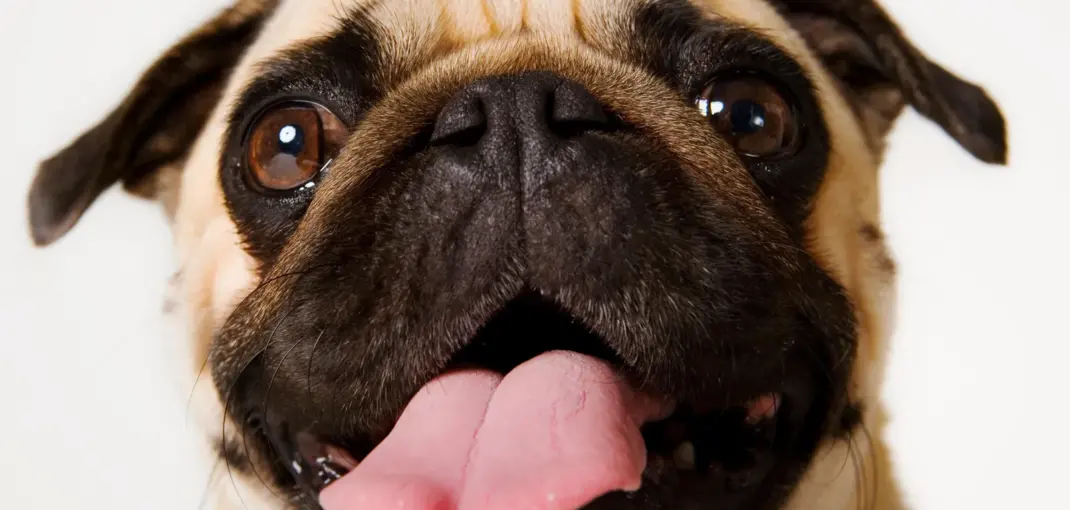When it comes to adorable pets, pugs are among the top contenders. Their charming personalities and distinct appearance make them beloved companions. However, a common question arises among pug owners and enthusiasts: Do pugs have Down syndrome? Find out the answer in the article below with Alibay Store
Do Pugs Have Down Syndrome?
Down syndrome is a genetic condition that arises when there is an extra copy of chromosome 21, a phenomenon known as trisomy 21. This genetic anomaly is exclusive to humans and leads to a range of physical and developmental challenges that can affect various aspects of a person’s life, including cognitive abilities, physical health, and emotional well-being.
Individuals with Down syndrome often exhibit distinct facial features, such as a flat facial profile and slanted eyes, and may face increased risks for certain medical conditions, such as heart defects and gastrointestinal issues. Despite these challenges, many individuals with Down syndrome lead fulfilling lives with the right support and resources. It’s important to note that this condition is specific to humans and does not occur in dogs, including beloved breeds like pugs.

Pugs and Genetic Health
While pugs do not experience Down syndrome, they are susceptible to several genetic health issues that are linked to their distinctive physical characteristics and selective breeding practices. These health concerns stem from the very traits that make pugs so endearing, such as their compact bodies and flat faces.
One of the most significant issues is Brachycephalic Airway Syndrome, a condition that affects many brachycephalic breeds, including pugs. Because of their short snouts and compressed nasal passages, pugs often struggle with proper airflow, leading to breathing difficulties, especially during exercise or in hot and humid weather. This can manifest in noisy breathing, snoring, and, in severe cases, can require surgical intervention to alleviate airway obstruction.

Another prevalent health concern among pugs is hip dysplasia, a genetic condition characterized by a malformation of the hip joint. In affected dogs, the hip joint does not fit properly into the hip socket, which can lead to pain and arthritis as they age. Symptoms may include difficulty in movement, limping, or reluctance to engage in physical activity. Early detection through veterinary evaluations and imaging can help manage this condition and improve the quality of life for affected pugs.
Furthermore, pugs are also prone to a range of eye problems due to their prominent eyes and unique facial structure. Conditions such as cataracts, which cloud the lens of the eye, and corneal ulcers, which are painful lesions on the eye’s surface, are particularly common. These issues can lead to discomfort and, if left untreated, can result in vision impairment.
Regular eye examinations by a veterinarian are essential for early detection and treatment, ensuring that pugs maintain good eye health throughout their lives. Overall, understanding these genetic health risks allows pug owners to take proactive measures, providing their beloved companions with the best care possible.
Caring for Your Pug
In summary, pugs do not have Down syndrome, as this condition is exclusive to humans. However, like all breeds, they have their own set of health considerations. By staying informed and proactive, pug owners can provide the best care for their furry friends.
If you’re a pug lover looking to celebrate your passion, consider checking out the adorable Pug Pillow available at Alibay Store! These custom pillows are not only cozy but also a perfect way to showcase your love for pugs. Visit us today and add a touch of pug charm to your home!







